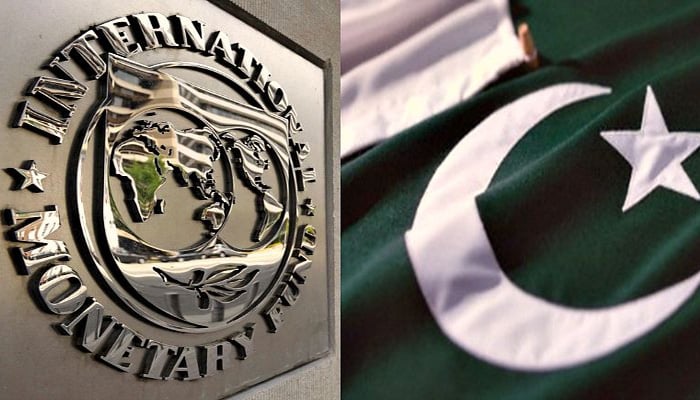Fitch Ratings says IMF ‘more viable’ financing option for Pakistan
KARACHI: Fitch Ratings on Tuesday termed the International Monetary Fund (IMF) as the ‘more viable’ lender for Pakistan that is in dire need of financial buttress to fix its external imbalances.
“We expect the authorities to explore financing options after the elections when, for example, an agreement with the IMF might become more viable,” US credit ratings agency said in a statement. “Pakistan’s last three-year IMF program, which began in September 2016, supported a recovery in foreign reserves and was marked by a shift to macroeconomic policy more focused on stability.”
Fitch Ratings projected the current account deficit to reach 5.3 percent of GDP in the fiscal year ended June compared with 4.7 percent previously. It also revised up the fiscal deficit forecast to six percent for FY2018 from the January’s projection of five percent.
“Further and considerable policy efforts would be required to stabilise the external position, and a new government has limited time to act after the 25 July elections, as external debt obligations will pick up more rapidly in 2019,” it said. “The cost (of external financing) could increase further amid continued global monetary tightening and rising geopolitical pressures. Vulnerabilities could be tested as rising debt-servicing payments start to add to external funding requirements from 2019.”
Fitch Ratings said declining foreign exchange reserves and widening current account deficit are adding to the country’s external financing risks and it “leaves a limited buffer in the event of problems accessing international markets or bilateral lending”.
“China’s continued willingness to provide financing through bilateral and policy-bank lending and likely inflows from the tax amnesty scheme limit near-term risks, as could market expectations of an eventual IMF agreement,” it added.
“Nevertheless, Pakistan’s cost of external market financing has risen in recent months, with yields on the government’s November 2017 10-year Eurobond up more than 200bp (basis points) since issuance.”
Fitch Ratings said the monetary authorities have taken some steps in recent months to address the deterioration in the external position.
The State Bank of Pakistan increased its policy rate twice by a cumulative 75 basis points since mid-January to cool domestic demand. It has also introduced greater flexibility in the heavily managed rupee by allowing three separate step depreciations since mid-December 2017 of a cumulative 13 percent against dollar.
“These policies have eased some pressure on reserves and may eventually support a narrowing of the current account deficit, but their magnitude so far has not been sufficient to prevent external finances deteriorating more sharply than we expected when we placed Pakistan’s sovereign rating of ‘B’ on negative outlook in January,” Fitch Ratings said.
Fitch Ratings said a significant policy shift to stabilise external finances is still possible following the general elections, “when a newly elected government may have more political leeway to implement measures that are likely to slow the economy”.
In January, it said the upcoming elections are likely to constrain the government’s ability to address external problems “convincingly in the near term”.
Fitch Ratings said economic growth has been robust over the past year, and “we expect the economy to expand by 5.5 percent in FY2018”.
“However, we have revised down our FY19 growth estimate to 5 percent from 5.5 percent in the January review, to reflect the likely impact of further tightening measures to alleviate external imbalances.”
-
 Katie Price Drama Escalates As Family Stays In Touch With Ex JJ Slater
Katie Price Drama Escalates As Family Stays In Touch With Ex JJ Slater -
 Critics Target Palace Narrative After Andrew's Controversy Refuses To Die
Critics Target Palace Narrative After Andrew's Controversy Refuses To Die -
 Sarah Ferguson’s Delusions Take A Turn For The Worse: ‘She’s Been Deserted’
Sarah Ferguson’s Delusions Take A Turn For The Worse: ‘She’s Been Deserted’ -
 ICE Agents 'fake Car Trouble' To Arrest Minnesota Man, Family Says
ICE Agents 'fake Car Trouble' To Arrest Minnesota Man, Family Says -
 Camila Mendes Reveals How She Prepared For Her Role In 'Idiotka'
Camila Mendes Reveals How She Prepared For Her Role In 'Idiotka' -
 China Confirms Visa-free Travel For UK, Canada Nationals
China Confirms Visa-free Travel For UK, Canada Nationals -
 Inside Sarah Ferguson, Andrew Windsor's Emotional Collapse After Epstein Fallout
Inside Sarah Ferguson, Andrew Windsor's Emotional Collapse After Epstein Fallout -
 Bad Bunny's Star Power Explodes Tourism Searches For His Hometown
Bad Bunny's Star Power Explodes Tourism Searches For His Hometown -
 Jennifer Aniston Gives Peek Into Love Life With Cryptic Snap Of Jim Curtis
Jennifer Aniston Gives Peek Into Love Life With Cryptic Snap Of Jim Curtis -
 Prince Harry Turns Diana Into Content: ‘It Would Have Appalled Her To Be Repackaged For Profit’
Prince Harry Turns Diana Into Content: ‘It Would Have Appalled Her To Be Repackaged For Profit’ -
 Prince William's Love For His Three Children Revealed During Family Crisis
Prince William's Love For His Three Children Revealed During Family Crisis -
 Murder Suspect Kills Himself After Woman Found Dead In Missouri
Murder Suspect Kills Himself After Woman Found Dead In Missouri -
 Sarah Ferguson's Plea To Jeffrey Epstein Exposed In New Files
Sarah Ferguson's Plea To Jeffrey Epstein Exposed In New Files -
 Prince William Prepares For War Against Prince Harry: Nothing Is Off The Table Not Legal Ways Or His Influence
Prince William Prepares For War Against Prince Harry: Nothing Is Off The Table Not Legal Ways Or His Influence -
 'How To Get Away With Murder' Star Karla Souza Is Still Friends With THIS Costar
'How To Get Away With Murder' Star Karla Souza Is Still Friends With THIS Costar -
 Pal Reveals Prince William’s ‘disorienting’ Turmoil Over Kate’s Cancer: ‘You Saw In His Eyes & The Way He Held Himself’
Pal Reveals Prince William’s ‘disorienting’ Turmoil Over Kate’s Cancer: ‘You Saw In His Eyes & The Way He Held Himself’




